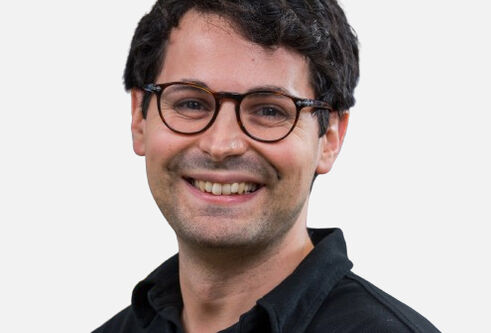PhD opportunity
Exploring the evolutionary origins of developmental diseases at single-cell resolution
Funded
24 August 2025
- Funding – Royal Society (Wolfson Studentship) funded 4-year studentship, providing tuition fees, training/research costs and an annual tax free stipend of £20,955
- Start Date – September/October 2025
- Applicants are expected to have a degree (equivalent of Honours or Masters) in a relevant discipline.
Many diseases of humans and other organisms are the result of a failure of multicellular organisation (formation of lineage specific body forms) or other growth dysfunctions. To better understand why malfunction occurs on the molecular level, this computational biology project will focus on a phenomenon known as heterochrony which describes how small natural polymorphic changes in gene activity can affect the timing of developmental programs and differences in body formation. Historically, many life scientists have studied how differences in the development of individuals can result in significant natural variation of organismal appearance and function. However, a detailed molecular understanding of heterochrony was never achieved, and we currently lack a clear understanding on the evolutionary origins and molecular mechanisms underlying the heterochronic developmental process.
We are looking for a highly motivated individual who strives as a team player in an interdisciplinary environment and who favours communication and problem solving with other team members and research groups. In this Royal Society Funded project the successful candidate will harness cutting-edge software solutions developed in our team (myTAI2, Drost et al., 2018 and https://github.com/drostlab/myTAI; orthologR, Drost et al., 2015; DIAMOND2, Buchfink et al., 2021; DIAMOND DeepClust, Buchfink et al., 2023; and GenEra, Barrera-Redondo et al., 2023) to establish a new evolutionary transcriptomics framework for molecular heterochrony research at single-cell resulution. This project will extensively work with various developmental transcriptomic datasets ranging from (pseudo-)bulk- to single-cell resolution to detect marker genes of heterochrony.
The successful candidate will furthermore make active contributions to the code-base of myTAI2 (https://github.com/drostlab/myTAI), rdiamond (https://github.com/drostlab/rdiamond), and orthologr (https://github.com/drostlab/orthologr) and will learn cutting-edge AI/ML technology applied to biology. Affinity and/or strong desire to learn R and Rcpp programming, R package development, Shiny App development, and data analytics, especially single-cell datasets are beneficial.
The ideal candidate will have a background in computational biology, bioinformatics, data science, statistics, or life science with extensive demonstrated experience in programming and data analysis.
The deliverables of this computational project will lead to advances in understanding the evolutionary origins of diseases driven by molecular heterochrony.
Our research community thrives on the diversity of students and staff which helps to make the University of Dundee a UK university of choice for postgraduate research. We welcome applications from all talented individuals and are committed to widening access to those who have the ability and potential to benefit from higher education.
How to apply
Applications are open to Home students.
Click ‘Apply Now’ to view the application guidance and download the application form.

